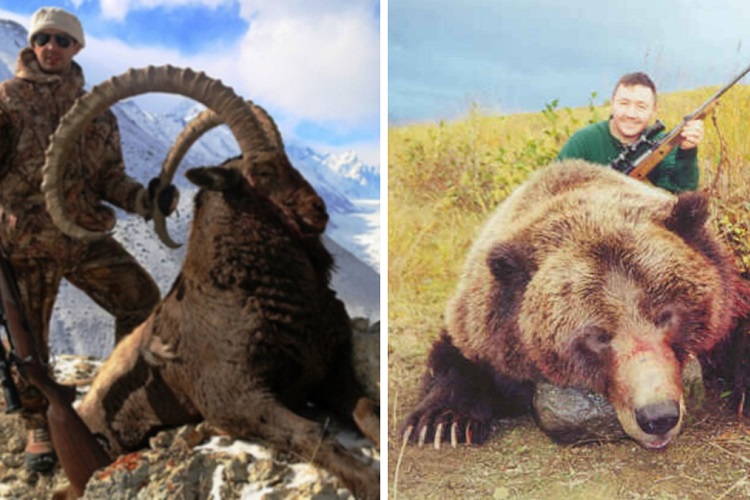I am no particular fan of trophy hunting, yet it is one of our few animal population tools available and do understand that it is managed. So far fairly well.
These numbers are actually small and remain a fraction of the potential.
What we need is a massive investment in restoration. Scotland used to have a vast Caledonian forest. Yellowstone informs us that the mere introduction of a moderate number of wolf packs will turn that completely around. The Deer will mostly go to ground and allow vast tracts to recover. Other introductions will also assist but that will stop the current close cropping taking place. Even before we bring in mixed mob grazing.
TROPHY HUNTERS KILLED 1.7 MILLION ANIMALS OVER THE PAST DECADE – INCLUDING ENDANGERED SPECIES
December 31, 2020
Elias Marat, The Mind Unleashed
https://www.wakingtimes.com/trophy-hunters-killed-1-7-million-animals-over-the-past-decade-including-endangered-species/?
The bloodthirsty “sport” of trophy hunting managed to kill one animal every three minutes over the past decades, according to a devastating new exposé of the industry.
Over 1.7 million animals – including elephants, lions, and rhinos – have been slaughtered by trophy hunters, with the wealthiest among them paying top dollar to kill rare and endangered creatures hovering at the brink of extinction.
The grim data underscores the ties between an industry that rakes in over $400 million per year and the global elites thirsty for a chance to kill the rare animals that conservationists have tirelessly worked to rescue.
The new book, entitled Trophy Leaks: Top Hunters and Industry Secrets, was written by Campaign to Ban Trophy Hunting (CBTH) founder Eduardo Gonçalves, and exposes the shocking scale of an industry that disingenuously claims that it is pursuing the aim of conservation.
Instead, the book reveals that trophy hunters have killed some “100 endangered animals” every day in 2018. The book, which also relies on analysis by the International Fund for Animal Welfare, shows that the life of an animal is taken for sport every three minutes in a blatantly irresponsible contribution to a loss of biodiversity that has seen the global rate of species extinction accelerate to unprecedented levels in recent decades.
For this reason, Gonçalves aptly characterizes the trophy hunting trade as an extinction industry that banks on the wholesale slaughter of creatures.
“An estimated 1.7 million animals were shot by trophy hunters over the past decade – the equivalent of almost 500 animals a day, or one every 3 minutes,” Gonçalves writes.
The book also reveals how shills for the game-hunting industry have run high-profile disinformation campaigns on social media to counter the efforts of the U.K. government to outlaw imports linked to trophy hunters. About £600,000 (USD $800,000) was used to prop up sock puppet accounts on Facebook and Twitter that purported to be Africans opposed to Boris Johnson’s pledge to ban trophy imports to Britain.
According to the book, nearly 800 hunters have won the “African Big 5” prize from the industry, which rewards those who have slain at least one buffalo, elephant, leopard, lion, and black or white rhino.
Hunting lobbyists with the Safari Club International (SCI) industry association have also awarded special prizes to hunters who have killed over 80 different African species.
Hunting advocates have also allegedly pledged over $2 million to Donald Trump’s presidential campaign in hopes of seeing a generous return on investments under his administration.
While Trump has previously denounced trophy hunting as a “horror show,” his two sons are prominent trophy hunters and the Humane Society of the United States has denounced his administration for catering to wealthy trophy hunters and ignoring the pleas of conservationists to ban the import of slain animal “trophies.”
“Future generations will look back aghast at how we allowed the world’s most endangered species to be gunned down in their droves by adrenaline junkies in pursuit of grinning selfies and gruesome souvenirs,” Gonçalves told the Daily Mail.
“Trophy-hunting isn’t about a handful of sick individuals – it is about a huge global industry which wields extraordinary power and manipulates governments.”

No comments:
Post a Comment